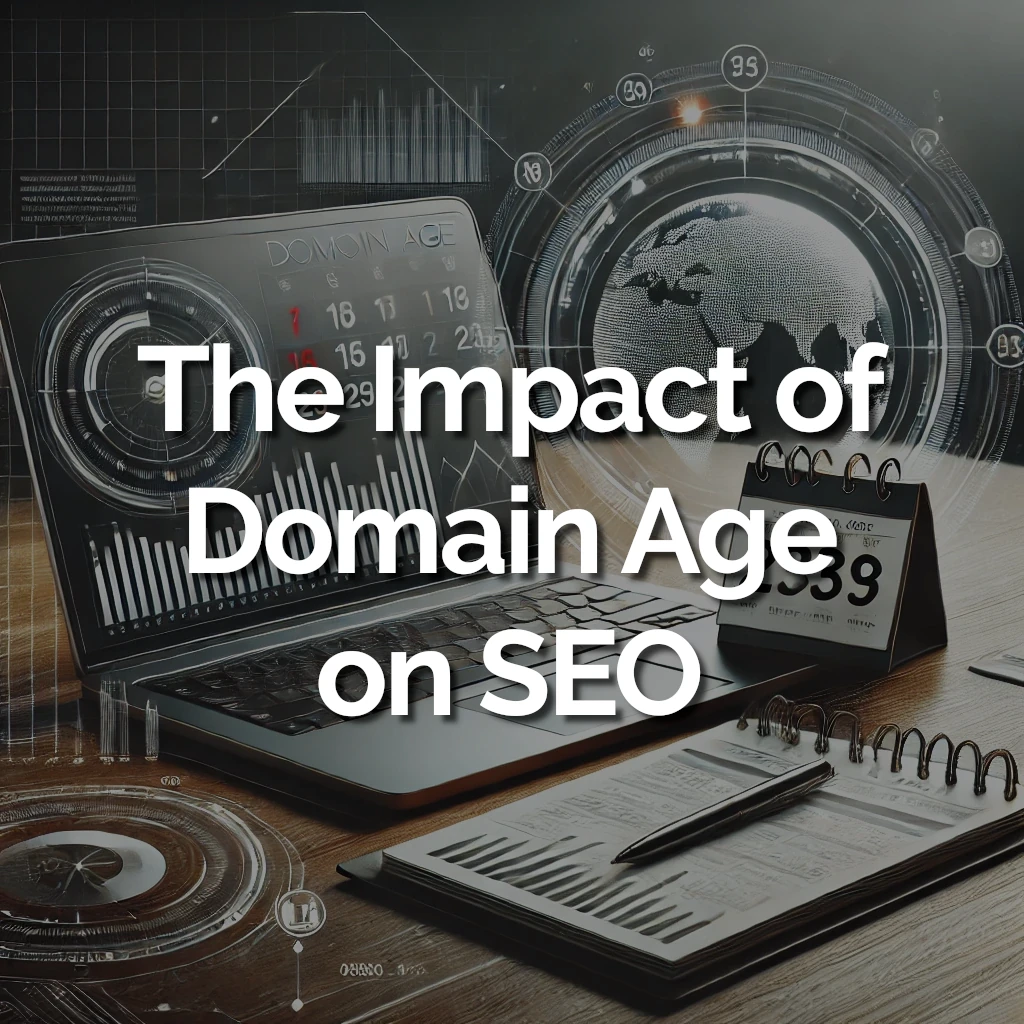When it comes to SEO, myths and misconceptions abound. Among the most persistent beliefs is the idea that the age of your domain—the length of time it’s been registered and active—plays a critical role in determining its search engine ranking. Is this just another SEO urban legend, or does it hold weight in the battle for Google supremacy? Let’s break it down, separate the myths from reality, and see what it means for new businesses trying to gain online traction.
What Is Domain Age?
Domain age refers to how long a domain name has existed since its registration. It’s easy to check: simply plug the domain into a WHOIS lookup tool, and voilà—you can see the creation date. For example, if a domain was registered in 2010 and it’s now 2024, it’s 14 years old.
Lookup a Domain Name in the WHOIS Database
Simply type a domain name, and we will look up the owner and other data in the global whois database
While domain age sounds straightforward, its impact on SEO is where things get murky. Many believe that older domains automatically have an SEO advantage over younger ones. The theory is that search engines, particularly Google, may view older domains as more credible or authoritative. But is this really the case?
Domain Age: Google’s Official Position
Google has made its stance on domain age quite clear: it’s not a significant ranking factor. Back in 2010, Matt Cutts, then head of Google’s Webspam team, addressed the topic directly. He explained that while domain age is a measurable factor, it doesn’t carry significant weight in Google’s ranking algorithms.
Why the Myth Persists
- Correlation vs. Causation: Older domains often rank higher not because they’re old, but because they’ve had more time to build backlinks, publish quality content, and establish authority.
- Survivorship Bias: Many old domains are still active because they’ve been successful. This leads to the perception that age itself is the reason for their success.
Factors That Matter More Than Domain Age
If domain age isn’t the golden ticket to higher rankings, what is? Here are the elements Google actually prioritizes:
01
Content Quality
Search engines favor content that is useful, relevant, and up-to-date. A young site with outstanding content will often outrank an older site with thin or outdated pages.
02
Backlinks
The number and quality of inbound links are critical. Older domains may have an edge here because they’ve had more time to attract links, but new domains can compete by earning backlinks through exceptional content and strategic outreach.
03
Technical SEO
Factors like page speed, mobile-friendliness, and secure connections (HTTPS) have a direct impact on rankings, regardless of domain age.
04
User Experience (UX)
Google values how users interact with your site. Metrics like bounce rate, time on site, and page views are far more influential than how long your domain has existed.
05
Topical Authority
If your site consistently covers a specific topic in depth, Google may see it as an authority in that niche—even if your domain is relatively new.
Does Domain Age Offer Any Indirect Benefits?
While domain age isn’t a ranking factor per se, older domains often have attributes that contribute to better SEO performance:
- Established Backlink Profiles: Older domains are more likely to have accumulated natural backlinks over time.
- Trust and Brand Recognition: A domain that’s been around for years may be perceived as trustworthy by users, indirectly improving click-through rates and other engagement metrics.
However, these benefits are not exclusive to old domains. New domains can achieve the same results through consistent effort, strategic planning, and quality content creation.
What This Means for New Businesses & New Domains
For entrepreneurs and startups, the idea that domain age is a critical ranking factor can be discouraging. However, the good news is that you don’t need an aged domain to succeed in SEO. Here’s how new businesses can level the playing field:
01
Focus on Content
Launch your site with a robust content strategy. Aim to publish informative, engaging, and shareable articles, blog posts, or videos that resonate with your audience.
02
Build Backlinks Wisely
Reach out to industry influencers, guest post on reputable sites, and create content worth linking to.
03
Prioritize Technical SEO
Ensure your site is fast, mobile-friendly, and secure. Use tools like Google Search Console to identify and fix any technical issues.
04
Leverage Social Media
While social media signals don’t directly affect rankings, they can drive traffic to your site and increase its visibility.
05
Establish Trust Signals
New sites can build credibility through customer reviews, testimonials, and partnerships with reputable brands.
Common Questions About Domain Age and SEO
A: Not necessarily. While an old domain may come with backlinks, it could also have a history of penalties or spammy behavior. Always research the domain’s history before purchasing.
A: It depends on your niche, competition, and SEO strategy. Some sites can see results in as little as 3-6 months, while others may take a year or more.
A: Yes. Changing your domain name can impact rankings temporarily, but if done correctly (e.g., using 301 redirects), you can retain most of your SEO value.
Conclusion: Domain Age Matters, but Not as Much as You Think
The idea that domain age is a make-or-break factor for SEO is largely a myth. While older domains may have advantages like established backlinks, these benefits are indirect and can be achieved by newer domains with a solid strategy. For new businesses, the key to SEO success lies in content quality, technical optimization, and earning trust through user engagement.
In the ever-changing world of SEO, it’s effort—not age—that wins the race.





